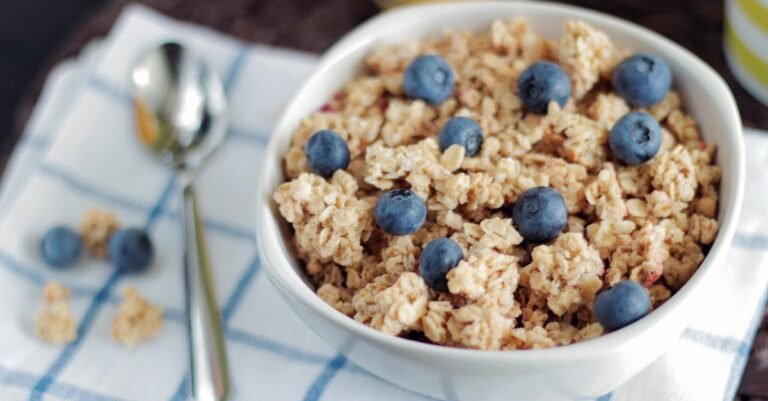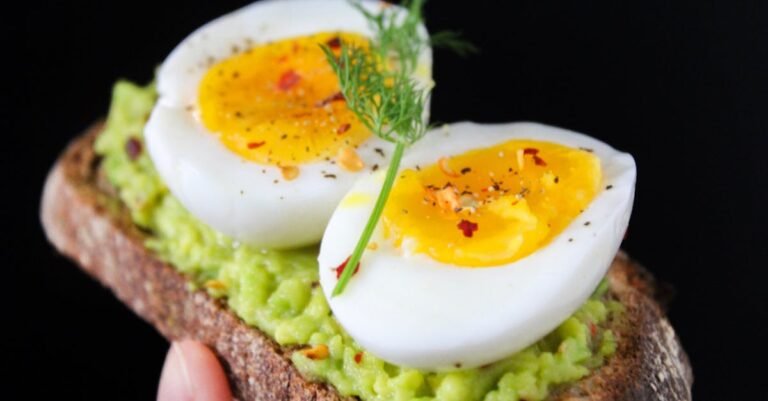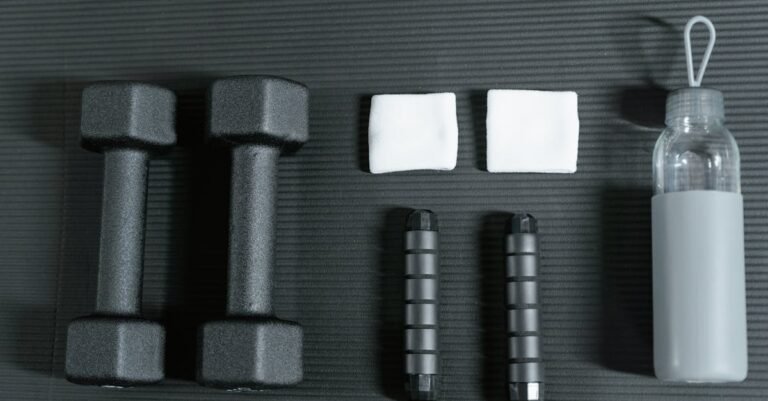Table of Content
- Pre Workout Nutrition: Fueling Your Body for Peak Performance
- Why Does Pre Workout Nutrition Even Matter?
- The Macronutrient Trio: Your Pre Workout Power Team
- Timing Your Pre Workout Meal or Snack
- Hydration: The Unsung Hero of Pre Workout Prep
- What NOT to Eat Before a Workout
- Pre Workout Meal & Snack Ideas (Examples)
- Listening to Your Body: Individual Needs Matter
- Conclusion: Fueling Your Fitness Journey
- Frequently Asked Questions (FAQs)
Pre Workout Nutrition: Fueling Your Body for Peak Performance
Alright, let’s talk fuel. You wouldn’t expect your car to win a race running on empty, right? So why would you expect your body to crush a workout without the right pre workout nutrition? What you eat before you hit the gym, the track, or the yoga mat can make a huge difference in how you feel, how you perform, and the results you get. Think of it as laying the groundwork for success. Getting your pre workout food right isn’t just about avoiding hunger pangs mid squat; it’s about strategically giving your body exactly what it needs to fire on all cylinders.
Maybe you’ve grabbed a banana on the way out the door, or perhaps you’ve downed a sugary energy drink hoping for a boost, only to crash halfway through your session. We’ve all been there! But understanding the why and what behind pre workout eating can transform your training. It’s about optimizing energy, protecting your hard earned muscle, and setting yourself up to push just a little bit harder. Ready to unlock your potential? Let’s dive into the delicious details of what to eat before you sweat.
Why Does Pre Workout Nutrition Even Matter?
So, why all the fuss about eating before exercise? Can’t you just wing it? Well, you could, but you’d be missing out on some serious benefits. Proper pre workout nutrition is like giving your body a high performance tune up before demanding peak output. It directly impacts several critical factors that determine the quality and effectiveness of your workout.
Energy Levels: The Foundation of a Good Workout
This one seems obvious, but it’s crucial. Food is energy, plain and simple. When you exercise, your body primarily uses glucose, which comes from carbohydrates you eat, for fuel. This glucose is stored in your muscles and liver as glycogen. Think of glycogen stores as your body’s readily accessible energy tanks. If these tanks are low because you haven’t eaten properly, you’ll likely feel sluggish, weak, and fatigue much faster. Imagine trying to drive a long distance with only a quarter tank of gas – you won’t get very far very fast! Eating the right foods beforehand tops up these glycogen stores, ensuring you have sustained energy to power through your entire workout, from the first rep to the last.
Performance Enhancement: Pushing Your Limits
It’s not just about having energy; it’s about performing at your best. When your body has adequate fuel, you can train harder, longer, and more intensely. For weightlifters, this might mean lifting heavier weights or completing more repetitions. For runners or cyclists, it could translate to faster speeds or greater endurance. Studies have consistently shown that consuming carbohydrates before exercise improves performance across various types of activities, from high intensity sprints to prolonged endurance events. By fueling correctly, you’re essentially giving yourself a competitive edge, allowing you to push past previous limits and make greater progress towards your fitness goals.
Muscle Protection: Preventing Breakdown
Here’s something many people don’t realize: intense exercise, especially strength training or long duration cardio, can actually cause muscle breakdown (catabolism). When your glycogen stores run low during a workout, your body might start breaking down muscle protein to convert it into glucose for energy. That’s the opposite of what you want, right? Consuming protein, along with carbohydrates, before your workout can help mitigate this. The carbs provide the primary fuel source, sparing your muscle protein. The presence of amino acids from protein can also signal your body to reduce muscle breakdown and can even kickstart the muscle repair and building process (anabolism) earlier. It’s like putting up a protective shield for your muscles before heading into battle.
The Macronutrient Trio: Your Pre Workout Power Team
When we talk about pre workout fuel, we’re mainly focusing on the three macronutrients: carbohydrates, protein, and fats. Each plays a distinct role, and getting the balance right is key. Think of them as a team: carbs are the star player scoring the points (providing energy), protein is the defense protecting the goal (your muscles), and fats are the reliable substitute providing backup energy for longer games (though used more sparingly right before kickoff).
Carbohydrates: Your Primary Fuel Source
Carbs are king when it comes to pre workout energy. As we mentioned, your body breaks them down into glucose, which fuels muscle contractions and brain function during exercise. Your muscles store this glucose as glycogen. The more glycogen you have stored, the longer and harder you can typically exercise before hitting that wall of fatigue. Depleting glycogen is a major reason why athletes “bonk” during long events. Therefore, ensuring adequate carbohydrate intake before training is paramount for performance, especially for moderate to high intensity activities lasting longer than an hour.
Simple vs. Complex Carbs: Timing is Everything
Not all carbs are created equal, especially when it comes to timing.
Complex carbohydrates (found in oats, brown rice, whole wheat bread, quinoa, vegetables) are digested more slowly, providing a steady release of energy over a longer period. These are generally ideal if you’re eating 2-3 hours before your workout. They give your body time to digest and replenish glycogen stores without causing a rapid blood sugar spike and subsequent crash.
Simple carbohydrates (found in fruits like bananas, white bread, sports drinks, honey) are digested much faster. They provide a quick burst of energy. These can be beneficial if you need fuel closer to your workout, say 30-60 minutes beforehand, as they become available for energy use more rapidly. However, relying solely on simple sugars, especially processed ones, right before a workout can sometimes lead to an energy crash later on.
Good Carb Choices Before Exercise
So what are some solid carb choices?
If eating 2-3 hours before:
- Oatmeal with some fruit
- Brown rice with chicken or fish
- Whole wheat toast with avocado
- Sweet potato
- Quinoa salad
If eating 30-60 minutes before:
- A banana
- A small bowl of low fiber cereal
- A few rice cakes
- A piece of fruit like an apple or orange
- A sports drink (in moderation, especially for longer/intense workouts)
The key is choosing options that sit well in your stomach and provide the type of energy release you need based on your timing.
Protein: Building and Repairing Muscle
While carbs are the primary fuel, protein plays a vital supporting role in your pre workout strategy. Its main job isn’t providing immediate energy during the workout (that’s carbs’ territory), but rather setting the stage for muscle repair and growth afterward, and helping to prevent excessive muscle breakdown *during* the workout.
Why Protein Before a Workout?
Consuming protein before exercise ensures that amino acids – the building blocks of protein – are readily available in your bloodstream during and immediately after your training session. This availability can potentially reduce muscle damage markers, lessen muscle protein breakdown, and promote muscle protein synthesis (the process of building new muscle). Think of it as pre loading your system with the necessary repair materials so they’re on site the moment the “damage” (exercise stress) occurs. Including around 15-25 grams of quality protein in your pre workout meal or snack is a good general guideline for most people.
Lean Protein Options
You want protein sources that are relatively easy to digest, especially if you’re eating closer to your workout. Heavy, fatty protein sources can sit in your stomach and cause discomfort. Good choices include:
- Greek yogurt
- Chicken breast (grilled or baked)
- Fish (like tuna or tilapia)
- Eggs or egg whites
- Lean turkey
- Tofu or edamame
- A quality protein powder (whey, casein, or plant based) mixed with water or in a smoothie
Pairing these with your carbohydrate source creates a balanced and effective pre workout fuel mix.
Fats: Sustained Energy (Use Sparingly Pre Workout)
Fats are an essential macronutrient and a great source of long term energy. However, they take the longest to digest. Eating a high fat meal right before a workout can lead to feelings of sluggishness, stomach upset, or cramps because your body is diverting energy to digestion instead of your working muscles. For this reason, it’s generally recommended to keep fat intake relatively low in the meal or snack immediately preceding exercise (the 1-2 hour window).
When Fats Can Be Helpful
Does this mean avoid all fats before working out? Not necessarily. Fats are crucial for overall health and hormone production. Including healthy fats in meals consumed earlier in the day or several hours (3+ hours) before a workout is perfectly fine and even beneficial. For very long duration, lower intensity exercise (like hiking or ultra endurance events), fat becomes a more significant fuel source, but even then, consuming large amounts right before starting isn’t usually optimal. A small amount of healthy fat (e.g., from nuts, seeds, or avocado) in a meal 2-3 hours prior is generally well tolerated and can contribute to satiety.
Healthy Fat Examples (in moderation)
If you are including fats in a pre workout meal consumed several hours beforehand, focus on healthy unsaturated fats:
- Avocado
- Nuts (almonds, walnuts)
- Seeds (chia seeds, flaxseeds)
- Nut butters (natural peanut or almond butter)
- Olive oil
Just remember: portion control is key, especially as your workout time approaches.
Timing Your Pre Workout Meal or Snack
Okay, so you know *what* to eat, but *when* should you eat it? Timing is almost as important as the food itself. Eat too close to your workout, and you might feel heavy or nauseous. Eat too early, and you might run out of readily available energy mid session. Finding that sweet spot is crucial for maximizing performance and comfort.
The Ideal Window: When to Eat
The general recommendation is to consume a balanced meal containing carbohydrates, protein, and a small amount of fat about 2-3 hours before your workout. This gives your body ample time to digest the food, absorb the nutrients, and top off those glycogen stores without leaving you feeling overly full when it’s time to exercise.
If eating a full meal isn’t feasible or you prefer to eat closer to your workout, aim for a smaller, easily digestible snack rich in carbohydrates and moderate in protein about 30-60 minutes beforehand. This snack should be lower in fat and fiber to minimize the risk of digestive distress during exercise.
Adjusting Based on Meal Size
It’s simple logic: the larger the meal, the more time you need to digest it.
- Large Meal (e.g., balanced dinner): Allow at least 3-4 hours.
- Moderate Meal (e.g., oatmeal with fruit & nuts, chicken & rice): Aim for 2-3 hours.
- Small Snack (e.g., banana, small protein shake, rice cakes): 30-60 minutes is usually sufficient.
Listen to your body! Some people have cast iron stomachs and can eat closer to exercise, while others need more time. Experiment to see what feels best for you and the type of workout you’re doing. A leisurely walk requires less digestion time than an all out sprint session.
Hydration: The Unsung Hero of Pre Workout Prep
We often focus so much on food that we forget about the MVP of bodily function: water! Hydration is absolutely critical for performance, temperature regulation, nutrient transport, and pretty much everything else your body does. Being even slightly dehydrated can significantly impair your workout performance, leading to increased fatigue, reduced endurance, decreased strength, and potential cramping.
Don’t wait until you’re thirsty to drink – thirst is actually a sign that you’re already becoming dehydrated. Aim to sip water consistently throughout the day leading up to your workout. A good guideline is to drink:
- About 17-20 ounces (500-600 ml) of water 2-3 hours before exercise.
- Another 8 ounces (240 ml) 20-30 minutes before you start.
- Sip water during your workout as needed (around 7-10 ounces every 10-20 minutes for intense exercise).
Water is usually sufficient for workouts under 60 minutes. For longer or very intense sessions, especially in hot weather, a sports drink containing electrolytes might be beneficial to help replace salts lost through sweat.
What NOT to Eat Before a Workout
Just as important as knowing what to eat is knowing what to avoid, especially in the immediate pre workout window. Certain foods can sabotage your session, leading to discomfort, sluggishness, or digestive issues. Here are the main culprits:
High Fat Foods
We touched on this earlier, but it bears repeating. Greasy, fried foods or meals loaded with heavy fats (think pizza, burgers, creamy sauces) take a long time to digest. Eating these close to a workout means your stomach will be working overtime, potentially leading to indigestion, bloating, cramping, and a general feeling of heaviness. Save the high fat meals for well after your workout or on rest days.
Excessive Fiber
Fiber is fantastic for overall health and digestion, but too much of it right before exercise can cause problems. High fiber foods (like large servings of beans, lentils, cruciferous vegetables like broccoli or cauliflower, or very high fiber cereals) can lead to gas, bloating, and the urgent need for a bathroom break mid workout. While complex carbs often contain fiber, focus on lower fiber carb sources like white rice, bananas, or potatoes if eating closer to your session, or keep portions moderate if eating fibrous foods a few hours out.
Sugary Drinks & Processed Snacks
While a small amount of simple sugar can be useful right before exercise, chugging sugary sodas, energy drinks loaded with sugar (not the sports drink kind), or munching on candy bars can backfire. These can cause a rapid spike in blood sugar followed by a sharp crash, leaving you feeling more tired than when you started. They often lack sustained energy and other beneficial nutrients. Stick to more natural, whole food sources of carbohydrates for better, more stable energy.
Pre Workout Meal & Snack Ideas (Examples)
Okay, theory is great, but let’s get practical! What does this look like in real life? Here are some concrete examples based on timing:
2-3 Hours Before Your Workout
This is your chance for a more substantial, balanced meal combining complex carbs, lean protein, and a little healthy fat.
- Option 1: Grilled chicken breast (protein) with a medium sweet potato (complex carb) and steamed green beans (some fiber, vitamins).
- Option 2: A bowl of oatmeal (complex carb) made with milk or water, mixed with a scoop of protein powder (protein) and topped with berries (simple carbs/vitamins) and a sprinkle of almonds (healthy fat/protein).
- Option 3: Salmon (protein/healthy fat) with quinoa (complex carb/protein) and roasted asparagus.
- Option 4: Scrambled eggs (protein) with whole wheat toast (complex carb) and a slice of avocado (healthy fat).
- Option 5: Greek yogurt (protein) with granola (complex/simple carbs) and fruit (simple carbs).
30-60 Minutes Before Your Workout
Focus here is on easily digestible carbs, with a smaller amount of protein if desired. Keep fat and fiber low.
- Option 1: A medium banana (simple carbs). Classic for a reason!
- Option 2: A small apple with a tablespoon of peanut butter (carbs/protein/fat – keep PB portion small).
- Option 3: A few rice cakes (simple carbs) perhaps topped with a thin layer of jam.
- Option 4: A small smoothie made with fruit (like berries or mango), a bit of Greek yogurt or half a scoop of protein powder, and water or almond milk.
- Option 5: A handful of pretzels or crackers (simple carbs).
- Option 6: Half a sports energy bar (check labels for lower fat/fiber).
Listening to Your Body: Individual Needs Matter
While these guidelines are a great starting point, remember that we’re all unique. What works perfectly for your gym buddy might leave you feeling bloated or sluggish. Factors like your individual metabolism, the type and intensity of your workout, the duration of your session, and even your personal taste preferences all play a role.
The best approach? Experiment! Keep a simple log of what you eat before workouts, when you eat it, and how you feel during your session. Did you have sustained energy? Did you feel sick? Did you hit a wall? Over time, you’ll start to see patterns and figure out your personal optimal pre workout fueling strategy. Maybe you find you perform best with a liquid snack like a smoothie, or perhaps you need a more solid food base. Maybe you need slightly more carbs for leg day than for an upper body workout. Pay attention to the signals your body sends – it’s usually the best guide you have!
Conclusion: Fueling Your Fitness Journey
So, there you have it! Pre workout nutrition isn’t some complex mystery reserved for elite athletes. It’s simply about understanding how different foods fuel your body and timing your intake strategically to maximize energy, enhance performance, and protect your muscles. By focusing on carbohydrates for energy, including protein for muscle support, timing your meals and snacks appropriately, staying hydrated, and avoiding foods that cause digestive upset, you can significantly improve the quality and effectiveness of your workouts. Remember to listen to your body and experiment to find what works best for you. Fueling properly is an investment in your health and fitness goals – make it count, and get ready to crush your next session!
Frequently Asked Questions (FAQs)
1. Is it okay to work out on an empty stomach (fasted training)?
It depends. For lower intensity, shorter duration cardio, some people tolerate fasted training well and may even experience benefits like increased fat burning (though overall fat loss depends on total daily calories). However, for high intensity training, strength sessions, or longer workouts, performance is generally better with pre workout fuel, particularly carbohydrates, to provide readily available energy and prevent muscle breakdown. If you try fasted training, pay close attention to how you feel; if you experience dizziness, excessive fatigue, or poor performance, it’s likely not optimal for you.
2. Should I take a pre workout supplement instead of eating food?
Pre workout supplements (often containing caffeine, creatine, beta alanine, etc.) can provide an acute performance boost for some people. However, they are not a replacement for proper nutrition. Real food provides sustained energy (from carbs), muscle building blocks (protein), and essential micronutrients that supplements lack. You can use a supplement in addition to a good pre workout snack if you choose, but prioritize your whole food nutrition first. Always research supplement ingredients and consult a healthcare professional if unsure.
3. What if I work out very early in the morning and don’t have time for a meal?
If you’re up at the crack of dawn, eating a full meal 2-3 hours before might not be realistic. In this case, focus on a small, easily digestible carbohydrate rich snack 20-30 minutes before you start. Options like half a banana, a few sips of a sports drink or diluted fruit juice, or even just a couple of rice cakes can provide a quick energy boost without requiring much digestion time. Alternatively, ensure your dinner the night before was well balanced with complex carbohydrates to maximize overnight glycogen storage.
4. Does the type of workout affect what I should eat beforehand?
Yes, to some extent. For long duration endurance activities (like running a marathon), maximizing carbohydrate intake in the hours and even days leading up (carb loading) is crucial. For strength training, ensuring adequate protein intake alongside carbs is important for muscle preservation and repair. For shorter, high intensity interval training (HIIT), easily digestible carbs for quick energy are key. While the core principles remain (carbs for fuel, protein for support), you might adjust the ratios or total amount based on the demands of your specific workout.
5. Can I just drink coffee before my workout?
Coffee (specifically caffeine) is a known ergogenic aid, meaning it can enhance performance, increase alertness, and reduce perceived exertion. Many people find a cup of black coffee 30-60 minutes before a workout beneficial. However, coffee itself doesn’t provide significant energy in terms of calories or macronutrients (like carbs). It stimulates your nervous system rather than directly fueling your muscles. So, while coffee can be a helpful addition, it shouldn’t replace your actual pre workout nutrition, especially for longer or more demanding sessions. Also, be mindful of how caffeine affects you – too much can cause jitters, anxiety, or digestive issues.










